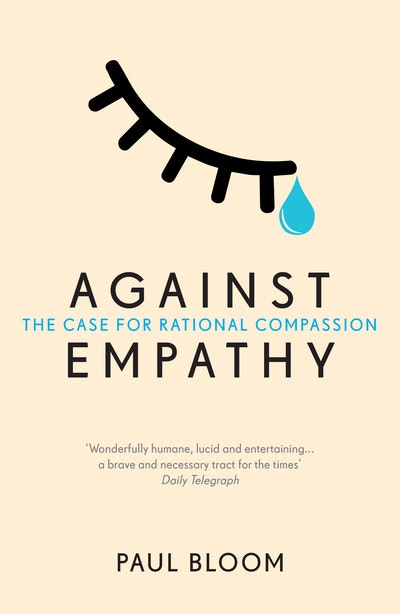

Demonstrating similar findings in his own research, Bloom concludes that “ empathic people more aggressive when exposed to the suffering of strangers. In s tudies where participants read stories of someone who was wronged and were then put in a position to inflict some minor pain on the agent who caused the suffering, participants chose to inflict more pain when the victim reported suffering from the wrong instead of feeling unbothered.


He provides empirical evi dence for Adam Smith’s observation in The Theory of Moral Sentiments from 1759, which Bloom quotes at length in his Atlantic essay :Īdam Smith observes that when we see someone harmed by another, we feed off his desire for vengeance: “ We are rejoiced to see him attack his adversary in his turn, and eager and ready to assist him.” Even if he dies, our imagination does the trick: “ We enter, as it were, into his body, and in our imaginations, in some measure, animate anew the deformed and mangled carcass of the slain, bring home in this manner his case to our bosoms.”īloom reports that this is verified in recent research. The example of lynching appears there too, although more briefly than in his recent talk.īloom i s a professor of psychology at Yale, so it should not surprise that he gets something importantly right about the science of empathy for those that we see suffer from a harm. īloom’s presentation to the Canadian Philosophical Association this month was almost identical to an essay he contributed to The Atlantic in 2015.

However, i t is jarring that he repeatedly uses lynching as an example of an empathy-fed atrocity. I knew the bare outline of it and thought it sounded intriguing : Bloom holds that empathy for members of groups subjected to harm can lead to atrocity against other groups. When I first heard about Paul Bloom’s book, Against Empathy, I was keen to be persuaded to his view.


 0 kommentar(er)
0 kommentar(er)
